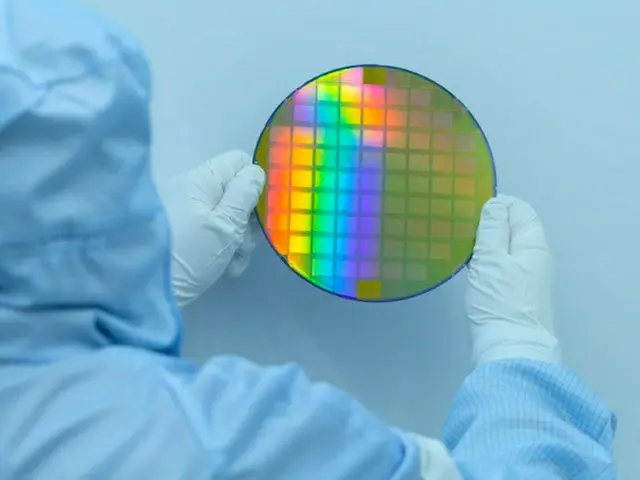The Wall Street Journal (WSJ) reported on the 29th (local time) citing a person familiar with the matter. According to the report, the new chip developed by Alibaba is more versatile and more reliable than its previous in-house chips.
It can be used for a wide range of AI inference tasks. The chips were manufactured by a Chinese semiconductor company. Alibaba's AI chips have been manufactured by the world's largest foundry (semiconductor contract manufacturing) company.
In 2019, Alibaba used TSMC to manufacture the Hanguang 800 inference chip, designed by its semiconductor division, Flathead.
Later, the US completely banned the production of chips for China using cutting-edge processes, making it impossible to manufacture through overseas cutting-edge foundries such as TSMC. However, Chinese semiconductor factories are still using outdated sea-based processes.
The WSJ pointed out that the company uses imported and domestically produced equipment, making it difficult to significantly expand its production capacity. Alibaba was one of Nvidia's major customers, but it was forced to close due to the US government's restrictions on China.
The company decided to develop its own chips after it found it difficult to secure the latest chips due to tightening regulations. Cloud and AI services are the company's two major growth engines, and a stable supply of AI semiconductors is essential.
Until now, Chinese companies have used Nvidia's H20 chips, which are less powerful than the Blackwell and H100 chips used in the United States.
In April of this year, the Trump administration restricted exports of H20 to China on the grounds of national security, exacerbating supply concerns. Last month, the US re-allowed H20 exports, but the Chinese government, including Alibaba,
China has instructed major companies, including those using H20 batteries, to refrain from purchasing them due to security concerns, prompting Alibaba and local semiconductor companies to develop their own chips to replace the H20.
The Chinese government is rushing to build an independent system for AI technology, including establishing an $8.4 billion AI investment fund in January of this year.
Leading the way is Huawei, which launched its Ascend AI team earlier this year.
The company unveiled a computing system that combines 384 Nvidia chips. Although it consumes a lot of power, some performance indicators show that it is faster than a system equipped with 72 of Nvidia's latest Blackwell chips.
In an interview with the Communist Party's official newspaper, People's Daily, in June, Huawei founder Ren Zhengfei said that by combining the chips, "it will be possible to achieve computational results close to the most advanced level."
"We can do this," he said, expressing his confidence that "there is no need to worry about the chip issue." In July, Shanghai startup MetaX released an alternative chip to the H20.
The chip is said to have enhanced performance for some AI tasks but consumes more power. MetaX announced this week that it is preparing for mass production of the chip.
Another challenger, Beijing-based Cambricon Technology, is in the second quarter (April-June).
The company posted a strong quarterly performance, posting revenue of $247 million in 2019. Its stock price fell 6% on the 29th following warnings about overheating, but its market capitalization remains above $87 billion.
However, the WSJ pointed out that Chinese AI semiconductors are still limited by their inferior performance in the field of AI training, for which Nvidia's high-performance chips are essential.
Regarding the AI model, Chinese AI model developers have complained that the model generates heat and malfunctions during training. After the WSJ report, Nvidia and Broadcom's stock prices fell sharply on the US stock market.
The Philadelphia Semiconductor Index, which is made up of AI and semiconductor-related stocks, also fell by more than 3%, with all but one of the 30 stocks that make up the index falling.
2025/09/01 09:14 KST
Copyrights(C) Edaily wowkorea.jp 88

